Sensors and transducers are crucial components in the fields of Instrumentation, Electrical, and Electronics Engineering. They serve as the eyes and ears of systems, translating physical quantities into electrical signals that can be interpreted and used for various applications.
Sensors and Transducers Questions
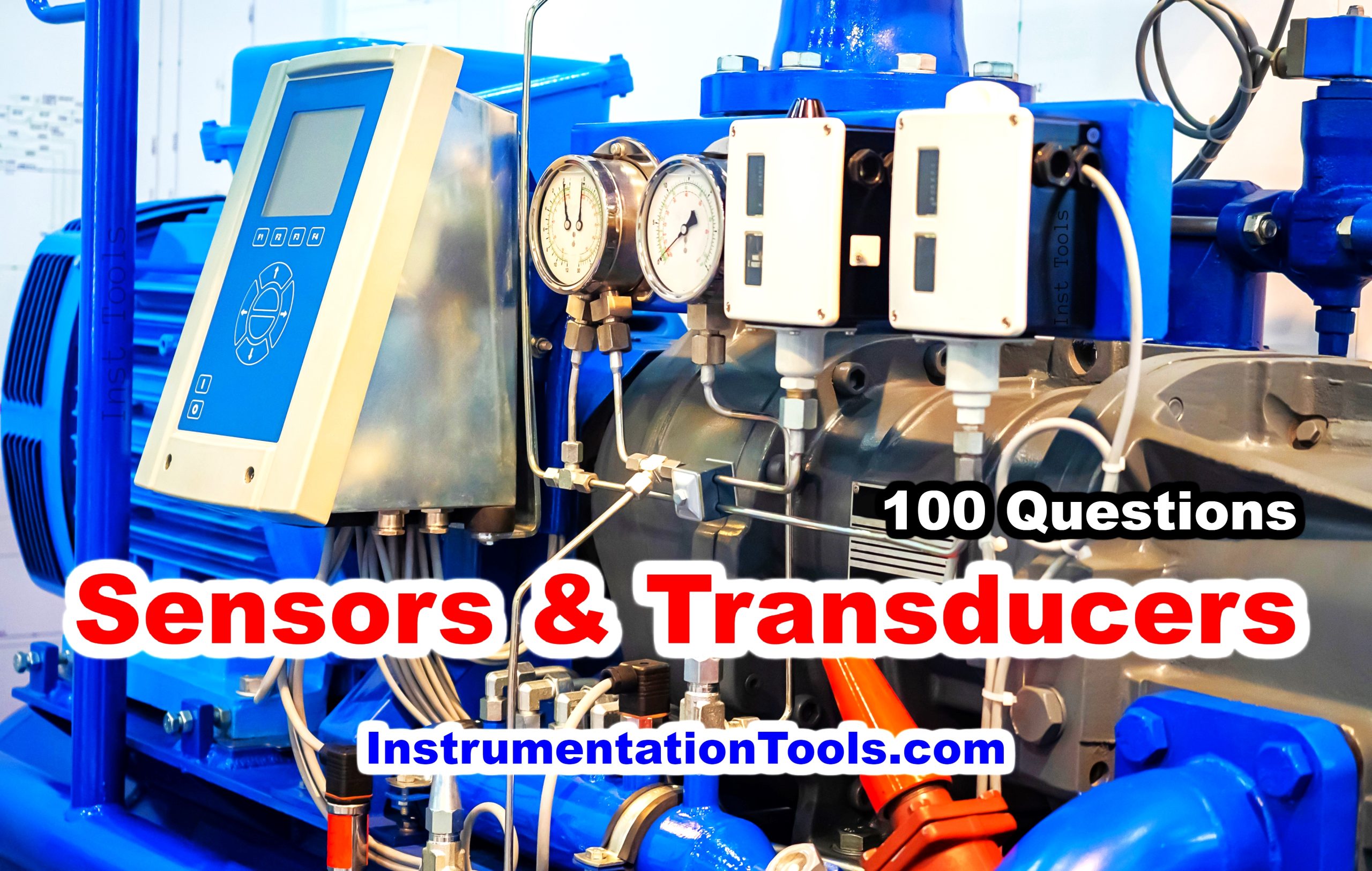
This list of 100 sensor questions aims to test your knowledge and understanding of sensors and transducers, their types, functionalities, principles, and applications.
- What is the principle of operation behind piezoelectric sensors?
- How does a thermocouple work?
- What are the advantages of using Hall-effect sensors?
- Explain the difference between active and passive sensors.
- How do capacitive proximity sensors operate?
- What is a Wheatstone Bridge and how is it used in strain gauges?
- Define the term “sensitivity” in the context of sensors.
- What are optoelectronic sensors?
- Explain the working of an ultrasonic sensor.
- What is a MEMS accelerometer?
- Describe the key features of a gyroscopic sensor.
- How do photodiodes work?
- What is the role of a transducer in a sensor?
- What are the different types of temperature sensors?
- How does a reed switch sensor work?
- What is the principle behind magnetic field sensors?
- Describe the applications of touch sensors.
- What are chemo-resistive sensors?
- Explain the working of a gas sensor.
- How do rotary encoders work?
- Describe the structure of a piezoresistive sensor.
- What is the difference between analog and digital sensors?
- How do LVDTs work?
- What are the applications of humidity sensors?
- Explain the working principle of a pressure sensor.
- What are tactile sensors?
- How do optical encoders work?
- Describe the working of a color sensor.
- What are the advantages of using an inductive sensor?
- Explain the importance of sensor calibration.
- How do thermistors differ from RTDs?
- What is a pyroelectric sensor?
- Describe the applications of flow sensors.
- What are SAW sensors?
- Explain the importance of sensor resolution.
- How do CCD sensors work?
- Describe the operation of an IR sensor.
- What are biosensors?
- How do you calculate the response time of a sensor?
- Describe the applications of radar sensors.
- How does a pH sensor work?
- Explain the working of a linear encoder.
- What are tactile arrays?
- Describe the operation of an anemometer.
- What is a potentiometric sensor?
- Explain the use of vibration sensors in machinery.
- How do laser distance sensors work?
- Describe the structure and function of a tilt sensor.
- What is a fiber optic sensor?
- How does a conductive sensor work?
- What is the difference between sensors and transducers?
- Explain the principles of thermal imaging.
- Describe the working of a smoke sensor.
- What are the limitations of ultrasonic sensors?
- How do pressure transducers work?
- What is the role of a signal conditioner in a sensor system?
- How do resistive touch screens work?
- What are MEMS microphones?
- Explain the working of a differential pressure sensor.
- Describe the applications of force sensors.
- What is a capacitive touch sensor?
- What are PIR sensors?
- Describe the working of a magnetic switch sensor.
- What is an NTC thermistor?
- How does an RTD work?
- Describe the principles behind acoustic sensors.
- What are the applications of speed sensors?
- How do liquid level sensors work?
- What is a current sensor?
- Explain the working of a gas chromatograph sensor.
- Describe the applications of a CO2 sensor.
- How do image sensors work?
- What is the working principle of a sound sensor?
- Describe the structure of a rotary potentiometer.
- What are displacement sensors?
- How do piezoelectric transducers work?
- Explain the importance of sensor accuracy.
- What are the advantages and disadvantages of capacitive sensors?
- Describe the operation of a pulse oximeter sensor.
- What is a galvanic cell oxygen sensor?
- What are the types of light sensors?
- How do magnetic resonance sensors work?
- Describe the operation of a heat sensor.
- How do RFID sensors work?
- What is a MEMS gyroscope?
- Describe the operation of a load cell.
- How do inclinometers work?
- What is the working principle of a position sensor?
- Explain the use of torque sensors.
- How do seismic sensors work?
- Describe the principles behind CMOS image sensors.
- How does a solar cell work as a sensor?
- What is an optical mouse sensor?
- Describe the applications of a barometric pressure sensor.
- How do proximity sensors work in smartphones?
- What are the limitations of capacitive touch sensors?
- How does a passive infrared sensor work?
- Describe the working of a galvanic skin response sensor.
- How do altimeters work?
- What are thermal sensors?
Conclusion
Sensors and transducers continue to evolve with advancements in technology, making them an ever-important area of study and application in engineering and beyond. This list of 100 questions on sensors and transducers provides an overview of the subject, covering various types and working principles, along with their applications and limitations.
If you liked this article, then please subscribe to our YouTube Channel for Electrical, Electronics, Instrumentation, PLC, and SCADA video tutorials.
You can also follow us on Facebook and Twitter to receive daily updates.
Read Next:
- Top 100 IIoT Project Ideas
- Biomedical Instrumentation Projects
- 100 Wireless Engineering Projects
- Advanced Microcontroller Projects
- Top 100 Counters & Timers Projects
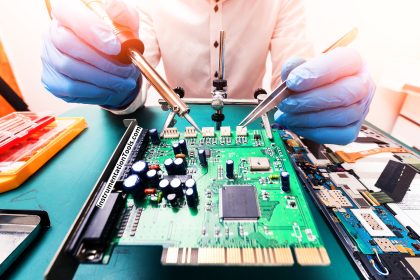


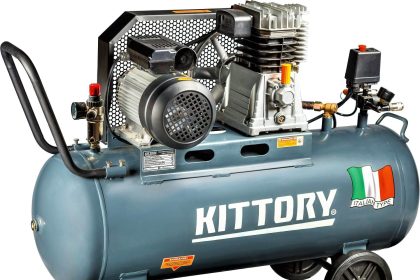

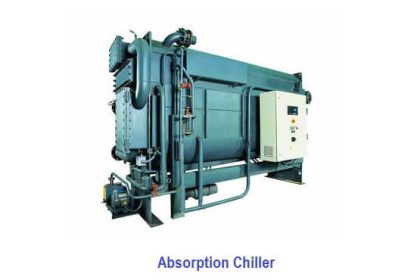

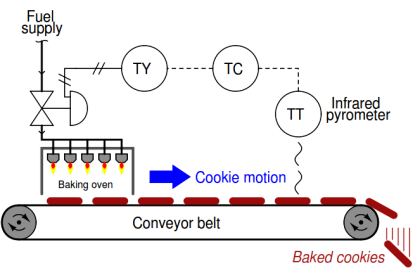
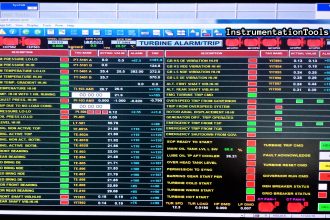

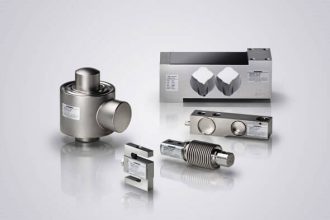
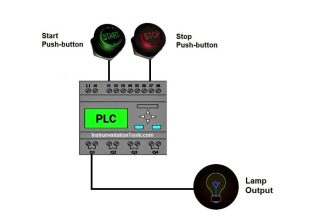
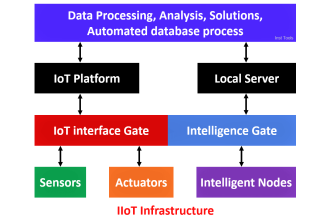

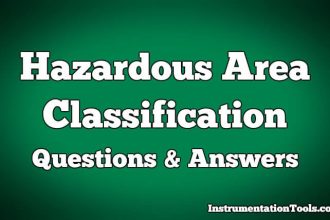
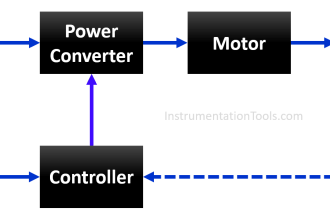

Do you have the answers to these 100 question?
If you do, please post them up here!
Thank you!